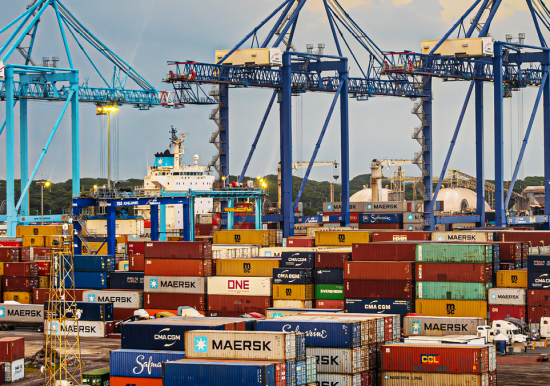
Regional Insights: Africa
Countries: 28 | Average Country Score: 0.400 | Median Country Rank: 95
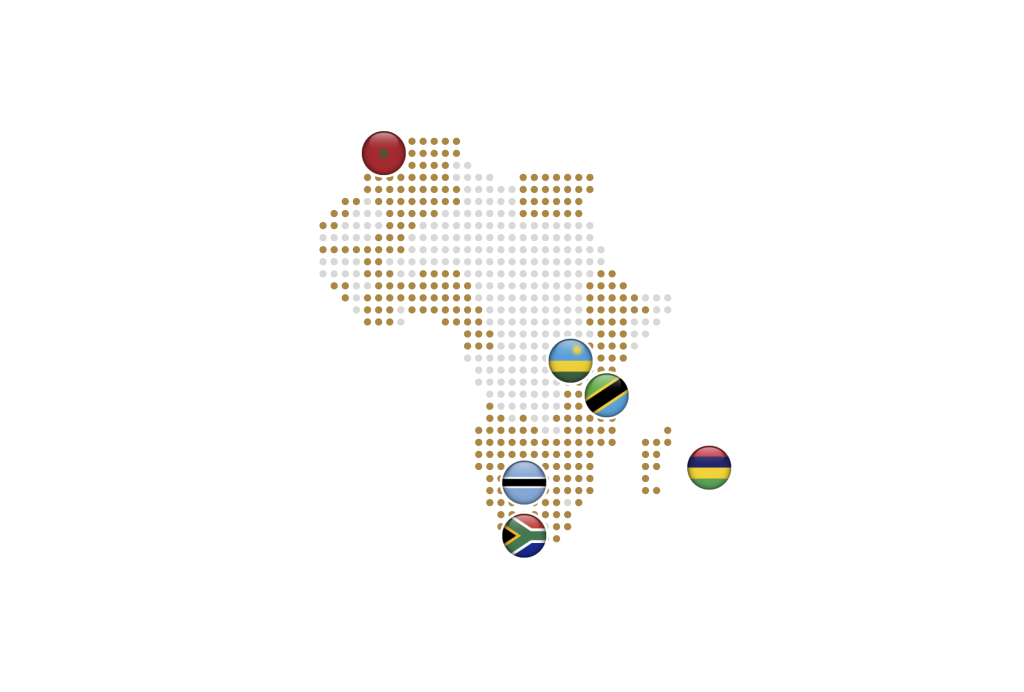
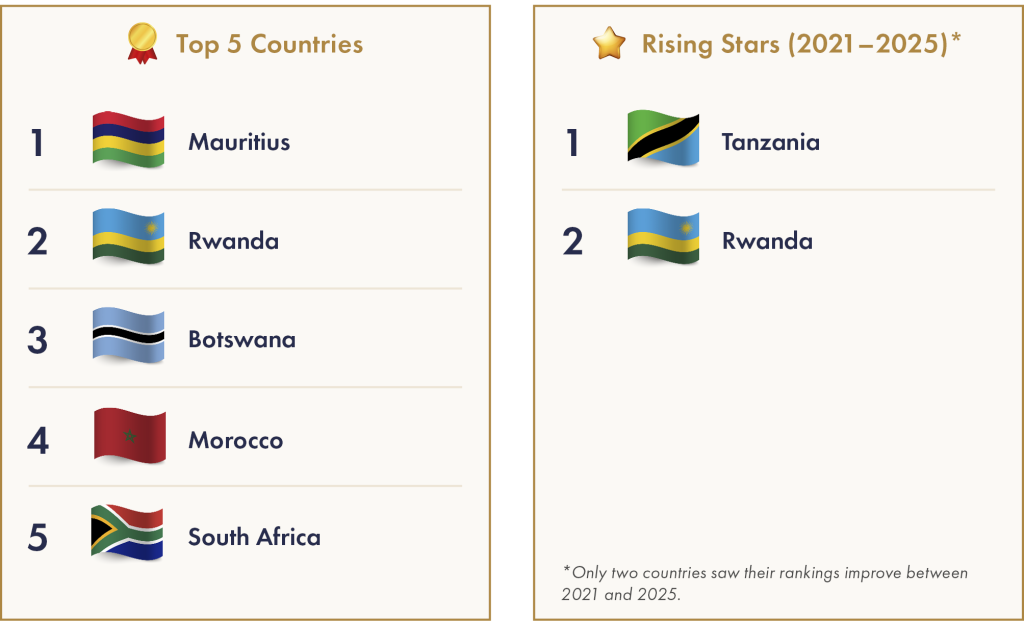
As a region, Africa continues to face challenges in improving the quality of governance. The average score for countries in Africa was the lowest amongst all regions, although there has been modest improvement between 2024 and 2025.
Africa is the world’s second-largest and second‑most populous continent, with its 28 CGGI‑ranked countries accounting for a population of about 1.16 billion. The region’s young demographic (70% of Sub-Saharan Africa’s population is under 301) presents both potential for growth and considerable governance challenges.
Mauritius retains its place as Africa’s top-ranked country for the fifth consecutive year, although its rank has fallen from 36th in 2021 to 51st in 2025. This reflects both increasing global competition as new countries enter the CGGI, and declines in its performance across several pillars, including Financial Stewardship and Attractive Marketplace.
Regional performance trends: Of the 28 ranked African countries, only two—Tanzania and Rwanda—moved up the ladder from 2021 to 2025, with the rest dropping in rank. The average score for the region’s countries declined during the pandemic years of 2021–2023, but picked up in 2024–2025.
Pillar trends: Countries in Africa have seen mixed performance across the CGGI pillars. The region’s average score for Strong Institutions has improved, while those for Financial Stewardship, Global Influence & Reputation, and Helping People Rise, have declined, with the remaining two pillars recording flat performance. Of most concern is Financial Stewardship, which has experienced the most sustained decline, as fiscal envelopes tighten and government debt burdens bite across the region.

Data Trends
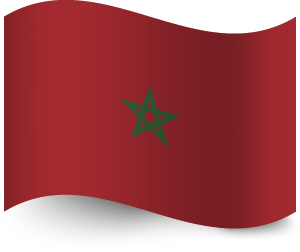
Morocco recorded Africa’s most significant score improvement for Data Capability. The country has made efforts to enhance government transparency and digital infrastructure, such as its Digital Morocco 2030 vision.2

Botswana’s performance in Quality of Judiciary has improved significantly between 2021 and 2025. In 2022, the country initiated digitalisation projects to streamline judicial process and improve its ability to clear outstanding cases.3
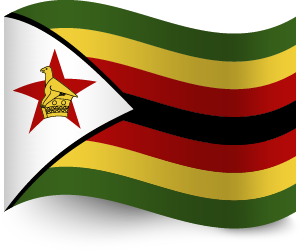
Zimbabwe has risen markedly in rank in Adaptability since 2021. Following a devastating drought caused by El Niño in 2024, the government instituted a National Climate Change Adaptation Plan to secure its long-term water supply and enhance food security.4
Endnotes
- United Nations. (n.d.) Young People’s Potential, the Key to Africa’s Sustainable Development. https://www.un.org/ohrlls/news/young-people%E2%80%99s-potential-key-africa%E2%80%99s-sustainable-development
- Digital Watch. (2024). Digital Morocco 2030. https://dig.watch/resource/morocco-digital-strategy-2030
- Maramwidze, A. (2 February 2022). Botswana’s judiciary embarks on ambitious DX drive. ITWeb. https://itweb.africa/content/PmxVEMKl44YqQY85
- The Herald. (2 August 2024). Climate Adaptation Plan to Mainstream Strategy Actions. https://www.heraldonline.co.zw/climate-adaptation-plan-to-mainstream-strategy-actions/
More Stories


Global Influence & Reputation Country Snapshot: Türkiye
